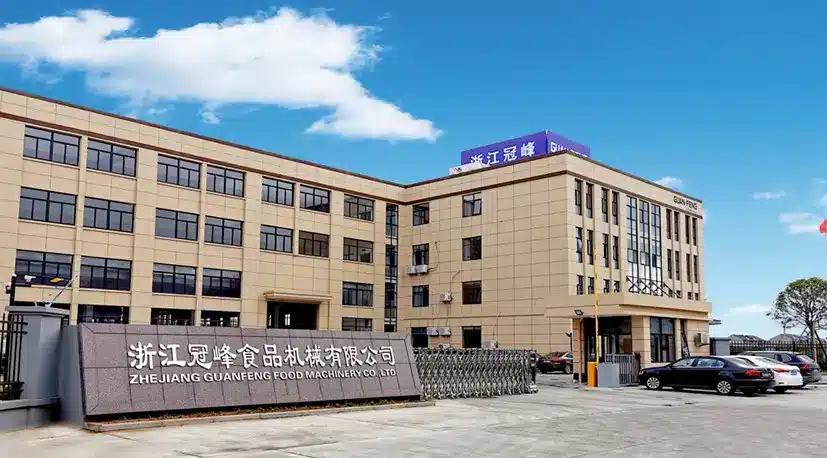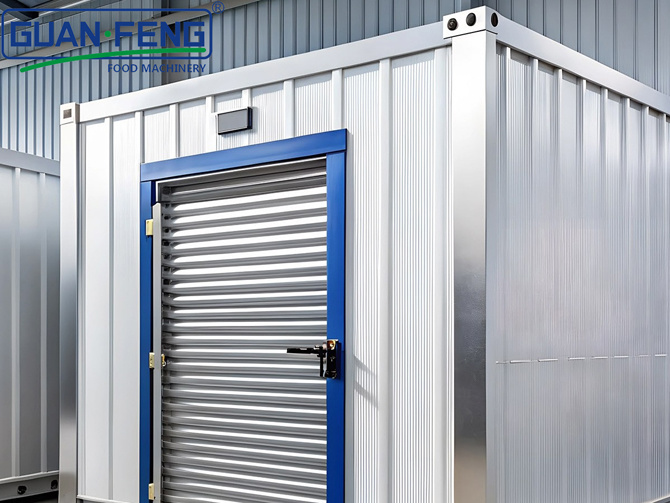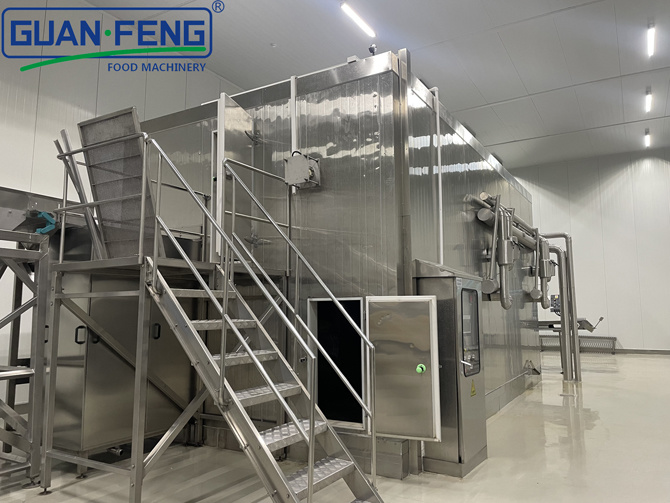BLOG
Focus on hot topics, real-time dynamics
Unlocking the Benefits of a Vegetable Lyophilizer for Nutrient Preservation
Unlocking the Benefits of a Vegetable Lyophilizer for Nutrient Preservation
Table of Contents
- Introduction to Vegetable Lyophilizers
- What is Lyophilization?
- The Importance of Nutrient Preservation
- How Vegetable Lyophilizers Work
- Benefits of Freeze-Drying Vegetables
- Applications of Lyophilized Vegetables
- Choosing the Right Vegetable Lyophilizer
- Frequently Asked Questions
- Conclusion
Introduction to Vegetable Lyophilizers
In today's health-conscious world, the preservation of nutrients in food is paramount. **Vegetable lyophilizers**, a cutting-edge technology in food preservation, offer a solution to maintain the essential vitamins and minerals found in our favorite vegetables. By harnessing the power of freeze-drying, these machines not only extend the shelf life of produce but also ensure a nutritious end product that consumers can trust.
What is Lyophilization?
Lyophilization, commonly referred to as freeze-drying, is a process that removes moisture from food while preserving its structural integrity and nutritional value. The procedure involves three main stages: freezing the food, reducing the surrounding pressure, and removing the ice through sublimation. This method effectively maintains taste, texture, and nutrients, making it an ideal choice for vegetable preservation.
The Lyophilization Process Explained
1. **Freezing**: The vegetables are rapidly frozen to temperatures below -40°C, which prevents the formation of large ice crystals that could damage cellular structures.
2. **Primary Drying**: The pressure is reduced in a vacuum chamber, allowing ice to change directly from a solid to a vapor without becoming liquid—this is known as sublimation.
3. **Secondary Drying**: The remaining moisture is removed, ensuring that the lyophilized vegetables have a low water content, which prevents spoilage and microbial growth.
The Importance of Nutrient Preservation
In a world where processed foods dominate grocery aisles, the necessity for preserving the natural goodness of vegetables is critical. Loss of nutrients can occur through traditional drying methods, such as air drying or sun drying, where heat exposure may degrade vitamins and minerals. **Lyophilization** offers a solution that not only retains a higher percentage of nutrients but also enhances the food's flavor profile.
Vitamins and Minerals at Risk
Certain vitamins, like vitamin C and some B vitamins, are particularly sensitive to heat and light. By using a vegetable lyophilizer, we can ensure that these essential nutrients are preserved, leading to a healthier end product.
How Vegetable Lyophilizers Work
Understanding how vegetable lyophilizers function is crucial for anyone interested in food preservation. The core mechanism revolves around the control of temperature and pressure, creating an ideal environment for sublimation to take place.
Components of a Vegetable Lyophilizer
- **Vacuum Chamber**: Maintains a low-pressure environment to facilitate sublimation.
- **Freezing Unit**: Rapidly freezes the produce at optimal temperatures.
- **Heating Elements**: Provides gentle heat during the secondary drying phase without damaging the food.
Benefits of Freeze-Drying Vegetables
The advantages of using a vegetable lyophilizer extend beyond simple preservation. Here are several key benefits that make freeze-drying a superior choice:
1. Nutrient Retention
As previously discussed, the lyophilization process preserves a significantly higher percentage of vitamins and minerals compared to traditional drying methods. This means that consumers receive a product that is not only flavorful but also nutritionally dense.
2. Lightweight and Compact
Lyophilized vegetables are lightweight and take up minimal space, making them perfect for storage and transportation. This characteristic is particularly beneficial for outdoor enthusiasts, campers, and those with limited storage space.
3. Long Shelf Life
Without moisture, the risk of spoilage is drastically reduced. Freeze-dried vegetables can last for years when stored properly, providing a convenient food source for emergencies or long-term storage.
4. Versatility in Cooking
Rehydrating lyophilized vegetables is simple and quick. They can be easily incorporated into a variety of dishes, from soups and stews to casseroles and salads, providing versatility and convenience in meal preparation.
5. Preserved Flavor and Aroma
The flavor of lyophilized vegetables remains intact, often enhancing the taste of dishes. The process locks in the fresh flavor and aroma, making them a delightful addition to any recipe.
Applications of Lyophilized Vegetables
The uses for freeze-dried vegetables are vast and varied. Here are some of the most common applications:
1. Emergency Preparedness
In emergency situations, having a stock of lyophilized vegetables can provide necessary nutrition when fresh produce is unavailable. They are a staple in many emergency food kits due to their long shelf life and ease of preparation.
2. Outdoor Adventures
Hikers, campers, and adventurers benefit greatly from the lightweight nature of freeze-dried vegetables. They provide a nutritious option without the bulk of fresh produce.
3. Food Industry
Restaurants and food manufacturers use lyophilized vegetables to enhance their dishes and products. The concentrated flavors and ease of use make them a popular choice for chefs and food developers alike.
4. Health and Wellness Products
Health-conscious consumers favor products that incorporate lyophilized vegetables. They are often found in smoothies, snack bars, and health supplements, providing a convenient way to boost nutrition.
Choosing the Right Vegetable Lyophilizer
When considering investing in a vegetable lyophilizer, several factors should be taken into account to ensure optimal performance and results.
1. Size and Capacity
Evaluate the volume of vegetables you plan to freeze-dry. Choose a model that fits your production needs, whether for personal use or commercial applications.
2. Features and Technology
Look for models with advanced features, such as programmable settings, digital displays, and built-in vacuum pumps. These enhancements can simplify the process and improve efficiency.
3. Brand Reputation and Reviews
Research various brands and read customer reviews to gauge reliability and performance. A reputable manufacturer will often provide better customer support and product warranties.
4. Price Considerations
While investing in a high-quality lyophilizer may require a higher upfront cost, the long-term benefits in terms of durability and efficiency often outweigh the initial expense.
Frequently Asked Questions
1. Can lyophilized vegetables lose their nutritional value over time?
No, when stored properly in a cool, dry place, lyophilized vegetables retain their nutritional value for many years.
2. How long does the freeze-drying process take?
The process can take anywhere from 20 hours to several days, depending on the type and volume of vegetables being processed.
3. How do I rehydrate lyophilized vegetables for cooking?
Rehydration is simple; just soak the vegetables in warm water for 10-30 minutes, or add them directly into your cooking for a more robust flavor.
4. Are lyophilized vegetables safe to eat?
Yes, freeze-dried vegetables are safe to eat. The process eliminates moisture and bacteria, making them safe for long-term storage.
5. Can I freeze-dry vegetables at home?
Yes, home lyophilizers are available for personal use. However, they may not be as efficient or effective as commercial models.
Conclusion
Vegetable lyophilizers represent a game-changing technology in the field of nutrient preservation. With their ability to maintain the integrity, flavor, and nutritional value of vegetables, they provide a versatile solution for food storage, emergency preparedness, and culinary innovation. As we continue to prioritize health and sustainability in our diets, embracing the benefits of freeze-drying will undoubtedly play a crucial role in how we consume and preserve our food. Investing in a vegetable lyophilizer allows us to unlock all these advantages, ensuring that our vegetables remain as nutritious and delicious as possible, no matter the season.
Hot Tags:
Contact Us
E-mail:
sales@syguanfeng.com
Tel:
+86 15088506234
Address:
South Industrial Park of Dongguan, Shangyu District, Shaoxing City,Zhejiang Province,China.
GUANFENG, your customization experts!
GUANFENG FOOD MACHINERY - leading supplier of integrated food processing solutions
Copyright© 2024 ZHEJIANG GUANFENG FOOD MACHINERY CO.,LTD.










